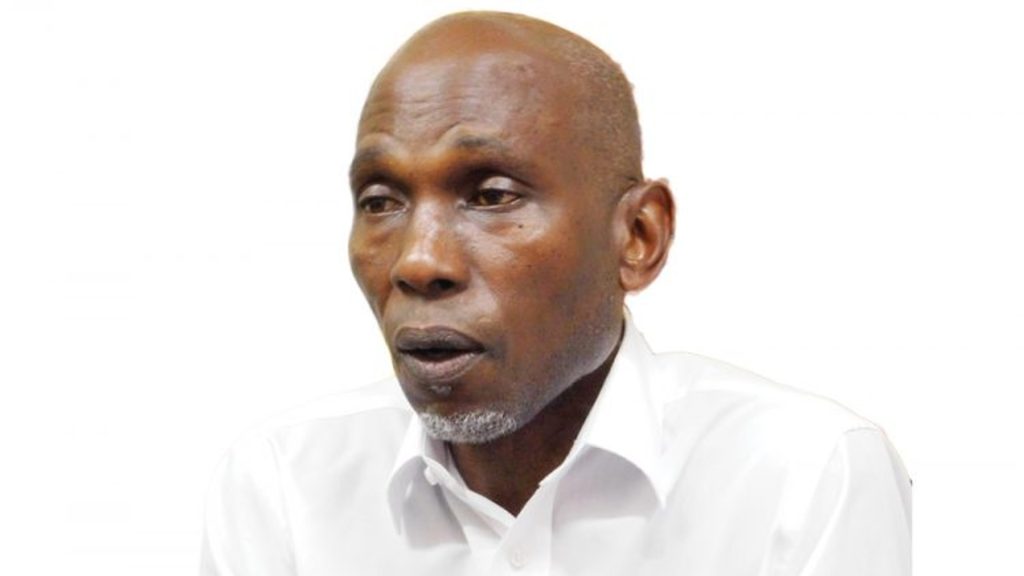In 1960, the United Nations General Assembly passed a resolution on granting independence to colonial countries and peoples. With 14 independent countries in CARICOM, the last being St Kitts- Nevis in 1983, some in the younger generation may be forgiven for thinking that the fight against colonialism is over. Sixty-two years on, colonialism is still alive and well in the Caribbean.
It took a presentation by anti-colonial fighter James Finnies of Bonaire to remind us that there are as many colonies as independent countries in our Caribbean. Appearing at the International Conference on Reparations organised by the Global African Congress (GAC) in Barbados, Mr Finnies listed Anguilla, Aruba, Bonaire, Bermuda, Cayenne, Cayman Islands, Curacao, Guadeloupe, Martinique, Montserrat, Puerto Rico, Saba, St Eustatius, St Barthelemy, St Marten, Turks and Caicos, US and British Virgin islands as Caribbean territories still under direct colonial rule.
What a revelation. Now more than ever, we need to redouble our efforts to ensure that the Caribbean is rid of what, in years past, we thought was dying colonialism. If we admit that CARICOM is a club of neo-colonial governments, we gain a genuine appreciation that the more things change, the more they remain the same. The colonial powers of Britain, France, Holland and the USA maintain firm control and dominance of our region five centuries after Europeans lost their bearings and stumbled into the Americas.
The reality of colonial and neo-colonial domination is a striking reminder that the post-colonial Caribbean is not post-colonial. The predominance of Euro-centric ideas and thinking truly reflects Europe’s power in our region. So many of us continue to self-hate. Like damned fools, we readily reject our continental African roots for a mentality as small as the mini-states we inhabit. We despise our melanated beauty and bleach ourselves into paleness and a sickened pink. Many of our women hate their natural hair and religiously wear synthetic mops on their heads. Wigs and weaves continue to have prominent places in our wardrobes. Some of us still prefer those who are white or light because our children deserve to have ‘curly and better hair.’ It is not uncommon to hear us referencing each other as black and ulgy rather than dark and lovely. A section of our black population continues to believe that our noses are too broad and lips too long.
It is a sad commentary on our progress as a people that in the week when we celebrate the 136 years since the birth of the black giant ancestor Marcus Massiah Garvey, our condition is so bleak. Now is not the time to falter. Those of us committed to the progress of our people must redouble our effort to educate them about their possibilities.
Garvey’s clarion call, ‘Up you mighty race, accomplish what you will’, must become our anthem.
The Reparations conference in Barbados was heartening for several reasons. Brothers and sisters from Africa and its diaspora were in attendance. It was good to see brothers and sisters who committed themselves to a lifetime of struggle and resistance still around. Bobby Clarke, the Barbadian revolutionary lawyer and former advisor to Maurice Bishop, made an appearance. Aged but determined as ever.
As a teenage boy, I was introduced to Raymond Charlotte, a revolutionary fighter against French colonisation from Cayenne by Ralph Gonsalves. On learning that there was a delegation from Cayenne, I introduced myself to a member of the delegation. I asked whether he knew Raymond Charlotte. He replied, ‘I am Raymond Charlotte.’ Still fighting for independence even though the French colonial police had arrested and jailed him more than 100 times.
Leading the delegation from Martinique was the indomitable Garcin Malsa. As articulate, committed, vigorous and determined as any youthful firebrand.
And then there was Cikiah Thomas and Michael Heslop. They now hold prominent positions in the Global African Congress. They were members of the Jamaican delegation to the 11th World Festival of Youth and Students in Havana in 1978. Adrian Saunders, president of the CCJ, led the Vincentian delegation, along with now High court judge Colin Williams, Master poet, calypsonian Sulle, Dr Miriam Francis-Sheridan and myself.
There was also a strong message from Dr Hilary Beckles, highlighting the fact that our African people never gave in to despair. They remained steadfast in their opposition to the slave trade and slavery. They resisted capture, being transported and the brutality on the plantations. He remained confidently optimistic that this 21st century will witness the triumph of the cause of reparatory justice.
If you have not yet read Britain’s Black Death and his newest production, How Britain underdeveloped the Caribbean, now is the time to read Dr. Beckles’s indictment of Britain and his manifesto for reparations.
When we ask where all the progressives have gone, we must remember and acknowledge that some are still with us. They hold dear to the teachings of ancestor Franz Fanon (who would have been 93 years old yesterday), who said in Wretched of the Earth, ‘Each generation must, out of relative obscurity, discover its mission, fulfil it, or betray it.’
These fears haunted ancestor Dr. Walter Rodney, who, in addressing the commitment and consistency of CLR James, said, ‘One of my biggest fears is to be walking down the street and hear whispers as I passed, there goes Walter Rodney, he used to be a revolutionary.’
The biggest drawback of the GAC conference on reparations was the absence of a robust and youthful presence. The conference resolved to consciously and actively recruit and train young cadres.
The fight for true liberation has only just begun.

